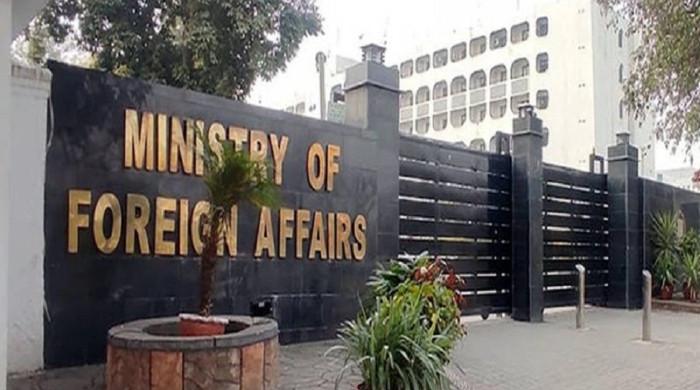Pakistan Rebukes India’s Provocative Statements, Prioritizing Hostility Over Peace
Pakistan has voiced strong condemnation of recent belligerent remarks by Indian leaders, including those made in Bihar. These statements, according to Pakistan, indicate a deeply “disturbing perspective” that favors animosity rather than peaceful relations.
Foreign Office Spokesperson Shafqat Ali Khan, responding to questions from the media, stated that these recent expressions by Indian leadership, particularly the ones made in Bihar, expose a profoundly unsettling attitude that gives precedence to antagonism instead of harmony.
He refuted any assertions that Pakistan is a source of regional instability, stating that such claims are detached from reality. He emphasized that the global community is fully cognizant of India’s history of assertive conduct, which includes documented backing of terrorist actions within Pakistan. He asserted that these realities cannot be concealed by empty narratives or diversionary strategies.
During a rally held in Bihar, Prime Minister Narendra Modi of India issued a warning to Pakistan, suggesting that Operation Sindoor was merely one weapon in India’s arsenal and emphasizing that the struggle against terrorism is ongoing.
Last week, Randhir Jaiswal, the spokesperson for the Indian Ministry of External Affairs, held Pakistan accountable for promoting terrorism within India. During the weekly press briefing, Jaiswal echoed Prime Minister Modi’s claim that discourse and terrorism are incompatible.
Jaiswal also dismissed the possibility of holding talks to resolve the Kashmir dispute between the neighboring countries, emphasizing that any bilateral discussion on Jammu and Kashmir would solely focus on Pakistan’s departure from the contested territory.
Conversely, the Pakistani spokesperson asserted that the Kashmir issue is still at the heart of regional instability and peace concerns. He declared that Pakistan will remain committed to supporting a fair and enduring solution to the Kashmir issue, in accordance with the desires of the Kashmiri people and the relevant UN Security Council resolutions.
He further added that to avoid addressing this essential issue is to subject the region to persistent uncertainty and the potential for confrontation.
Shafqat remarked that the recent events have further demonstrated the complete uselessness of coercion and belligerence. He said India is unable to achieve its objectives through threats, force, or misrepresentation.
The FO spokesperson affirmed Pakistan’s dedication to constructive engagement and peace while also stating the nation’s resolve to safeguard its territorial integrity and sovereignty against any acts of aggression.
He concluded by saying that lasting peace in South Asia requires maturity, moderation, and a readiness to tackle the underlying causes of discord, instead of pursuing limited political advantages at the detriment of regional stability.
Earlier, from May 6 to 10, armed forces from Pakistan and India engaged in conflict. The hostilities began when New Delhi responded to an assault on April 22 in Pahalgam, which is located in Indian Illegally Occupied Jammu and Kashmir. Gunmen murdered 26 civilians in the area. India attributed the incident to terrorism committed by Pakistan, a charge that Islamabad officials have refuted.



Comments (0)
No comments yet. Be the first to comment!
Leave a Comment